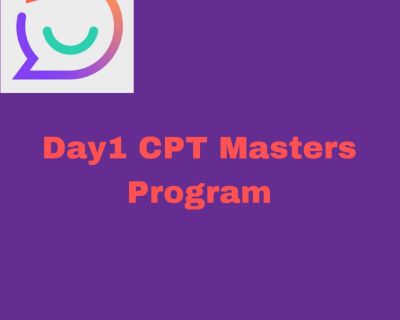Introduction
Embarking on a study abroad journey can be an exciting yet daunting experience. One crucial step in this process is mastering the IELTS exam, a gateway recognized worldwide. Understanding the exam and selecting the right format—IELTS Academic or IELTS General Training—is vital for your success. This guide will help you make an informed decision and maximize your IELTS exam potential.
Why Take the IELTS Exam?
Universally Recognized Test
The International English Language Testing System (IELTS) is a renowned English proficiency exam taken by millions of aspirants globally. It is widely accepted by schools, universities, employers, and immigration bodies, offering a credible measure of your language abilities.
Key to University Admissions and Visa Approvals
A solid IELTS score is often a requisite for admission to universities in English-speaking countries. It’s also crucial for visa applications, thus paving the way for seamless travel and study opportunities abroad.
Overview of IELTS Test Formats
IELTS Academic
Purpose and Usage
The IELTS Academic test is designed for those pursuing higher education or professional registration in an English-speaking environment.
Target Audience
Ideal for students applying to undergraduate or postgraduate courses. Professionals in fields such as medicine or engineering may also find the academic format suits their certification processes.
IELTS General Training
Purpose and Usage
The IELTS General Training test focuses on practical English skills used in everyday professional and social contexts.
Target Audience
Geared towards individuals pursuing secondary education, employment, or immigration to English-speaking nations.
Key Differences: IELTS Academic vs. IELTS General Training
Reading Section Differences
- IELTS Academic: Features complex texts similar to those encountered in university courses. It aims to assess reading comprehension of detailed information and advanced vocabulary.
- IELTS General Training: Includes extracts from books, magazines, and newspapers, testing basic comprehension skills ideal for everyday contexts.
Writing Section Differences
- IELTS Academic: Requires descriptions of charts or graphs and essay tasks. This format demands clarity and coherence suitable for academic writing.
- IELTS General Training: Emphasies writing letters or simple essays, targeting practical communication abilities.
Listening Section: Commonalities and Variations
While both formats share the same listening components, the contexts may vary slightly to align with the academic or general focus.
Speaking Section: Universal Content
Both test formats feature the same speaking test, consisting of an interview-style assessment to evaluate conversational skills.
Determining Which Test is Right for You
Identify Your Study Abroad Goals
- University Requirements: Check the specific IELTS format your chosen institution requires.
- Course or Program Needs: Some professional courses may demand the academic format due to the nature of the study involved.
Consider Your Career Aspirations
- Immigration vs. Employment Opportunities: If your aim is immigration, the General Training format is typically sufficient. However, for professional roles requiring advanced communication, the academic test may be more appropriate.
Evaluating Your English Proficiency Level
Self-Assessment and Diagnostic Tests
Tools like practice tests and self-evaluation can help gauge your current proficiency. Understanding your strengths and weaknesses is crucial in choosing the test format that aligns best with your skills.
Understanding Test Scoring and Band Requirements
Familiarize yourself with the band scores and what they represent. Knowing the score requirements for your specific goals will guide your preparation strategy.
Preparing for the IELTS Exam
Selecting the Right Preparation Resources
- Official IELTS Practice Materials: Utilize books and online resources specifically designed for IELTS.
- Online Courses and Study Groups: Engage in courses and join communities for support and shared strategies.
Creating a Study Plan Tailored to Your Target Test Format
Craft a personalized study schedule focusing on the areas most challenging to you, whether it’s vocabulary, listening, or writing skills, corresponding to your chosen test format.
Choosing Your Test Date and Location
Availability and Frequency of Test Dates
IELTS exams are held frequently throughout the year. Plan to book your test date well in advance, ensuring it aligns with application deadlines.
Selecting a Convenient Test Center
Choose a test center that is easily accessible to minimize travel stress on the exam day.
Tips for a Successful IELTS Test Experience
Time Management Strategies
- Practice under timed conditions.
- Prioritize sections based on your strengths to maximize efficiency.
Common Pitfalls and How to Avoid Them
- Read all instructions carefully during the test.
- Avoid spending too much time on a single question.
Relaxation and Focus Techniques During the Test
- Regular breaks during preparation prevent burnout.
- Techniques like deep breathing can enhance focus during the exam.
Post-Test Considerations
Interpreting Your Score and Next Steps
Once you receive your results, evaluate them against your goals. Determine if retesting is necessary or if you need further training.
Understanding the Re-evaluation Process
If you’re unsatisfied with your results, IELTS offers a re-evaluation service to ensure scoring accuracy.
IELTS Test Validity and When to Retake If Necessary
IELTS scores are valid for two years. Plan retakes if your scores expire before completing your objectives.
Conclusion
Choosing the right IELTS test format according to your study abroad plans is a critical decision. Align the format with your educational and career goals to ensure success. With thoughtful preparation, the IELTS test can be a stepping stone to achieving your dreams.
Frequently Asked Questions
-
Can I Use Academic IELTS for Immigration Purposes?
While Academic IELTS is primarily for educational purposes, some immigration programs may accept it. Always verify with the relevant authorities. -
How Often Can I Take the IELTS Exam?
There’s no limit to the number of times you can retake the exam. However, consider preparation improvements between attempts. -
What Happens If I Choose the Wrong Test Format?
Incorrect selection may impact your applications. Confirm the required format with the institutions or agencies before registering.
Call to Action
Explore more IELTS preparation resources and ensure your readiness for studying abroad. Subscribe to our blog for the latest updates on IELTS preparation and study opportunities worldwide.








